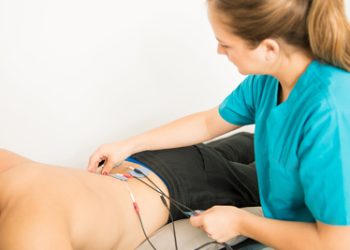Growing up and becoming an adult can be a complex experience for everyone. But autistic individuals may face additional challenges during this transition.
Autism Spectrum Disorder (ASD) is a lifelong developmental condition that affects how individuals process information, interact with the world, and relate to others. While the exact cause of autism remains unknown, it’s estimated to affect 1 in 54 children globally.
In South Africa, the prevalence of autism is not definitively established, but research suggests it follows a similar trend.
This article explores the experiences of autistic adults in South Africa, highlighting the challenges they encounter, the strengths they bring to the table, and the resources available to support them on their journey into adulthood.
1. Challenges Faced by Autistic Adults
1.1 Employment
Finding and maintaining employment can be a significant hurdle for autistic adults. Communication styles, sensory sensitivities, and social interaction differences can impact workplace experiences.
Studies by Autism South Africa suggest a lower employment rate for autistic adults in South Africa.
Furthermore, study published in the South African Journal of Occupational Therapy emphasises the lack of services available to prepare autistic adults for the workforce.
It highlights the unmet needs of autistic individuals transitioning into the labour market and the potential role occupational therapists can play in providing vocational rehabilitation services.
Key findings of the study include:
- A lack of support in areas like pre-vocational skills development, job-seeking skills training, and supported employment.
- The need for occupational therapists to play a more significant role in preparing autistic adults for the workforce.
1.2 Socialising
Social interaction and forming relationships can be more challenging for some autistic adults, potentially leading to feelings of loneliness or isolation.
Social skills training programmes and peer support groups offered by organisations like Autism South Africa can help autistic individuals develop the confidence and skills they may find helpful in connecting with others.
1.3 Independent Living
Daily living tasks, like cooking, cleaning, and managing finances, can be a challenge for some autistic adults, potentially limiting their opportunities for independence and socialisation.
However, support services like personal care assistants and supported living arrangements can be invaluable resources.
With the right support and accommodations, autistic adults can develop the necessary skills to live independently.
1.4 Accessing Services
As autistic individuals age, they may encounter difficulties in accessing the services and support they need, including healthcare, education, and community services.
Long waiting lists, lack of awareness among some healthcare professionals, and the limited availability of resources specifically tailored to autistic adults can create significant barriers.
1.5 Mental Health
Autistic individuals may be more susceptible to developing mental health issues, such as anxiety and depression. This is due to the challenges they face in navigating the world and the social stigma and discrimination they may experience.
It’s important to recognise these challenges and provide adequate support and resources for autistic individuals as they transition into adulthood.
2. Strengths and Abilities
Autistic individuals possess a wide range of strengths and abilities. Many autistic adults excel in areas like:
- Mathematics
- Music
- Visual Arts
- Detail-oriented tasks
- Pattern recognition
These strengths can be harnessed to provide fulfilling careers and hobbies.
3. Support and Resources in South Africa
Fortunately, South Africa offers various resources and opportunities to support autistic adults as they transition into adulthood. Here are some key organisations and programmes:
- Autism South Africa: This non-profit organisation offers support and resources to individuals with autism and their families, including advocacy, education, and training.
- Autism Western Cape: Similar to Autism South Africa, this Western Cape organisation provides education, training, advocacy and support groups.
- The National Institute for the Deaf: This organisation offers services such as audiology, speech therapy, and education and training for individuals with hearing loss and other communication disorders.
- Special Needs Schools: Several special needs schools cater to individuals with autism, including Vista Nova School in Cape Town, Japari School and Unity College in Johannesburg.
5. Job Training and Employment Opportunities
The South African government offers various programmes and initiatives to support individuals with disabilities, including autism, during their transition to adulthood.
These include disability grants and tax incentives for employers who hire individuals with disabilities.
6. The Road Ahead
Navigating adulthood with autism is challenging but also an opportunity for personal growth and self-discovery. With the right support, accommodations, and approaches, autistic individuals in South Africa can overcome obstacles and achieve their goals.
They can lead fulfilling lives. Improving support systems, raising awareness, and challenging social stigma are crucial for a more inclusive society for autistic adults.
Mental Matters is a resource and information platform. We do not provide medical advice, diagnosis, or treatment. While the information on our website is for general awareness and support, it should not replace professional advice. For any mental health concerns, please consult a qualified healthcare or mental health professional.
Therapy and Support for Autism
Why Small Talk Can Be a Struggle for Autistic People


